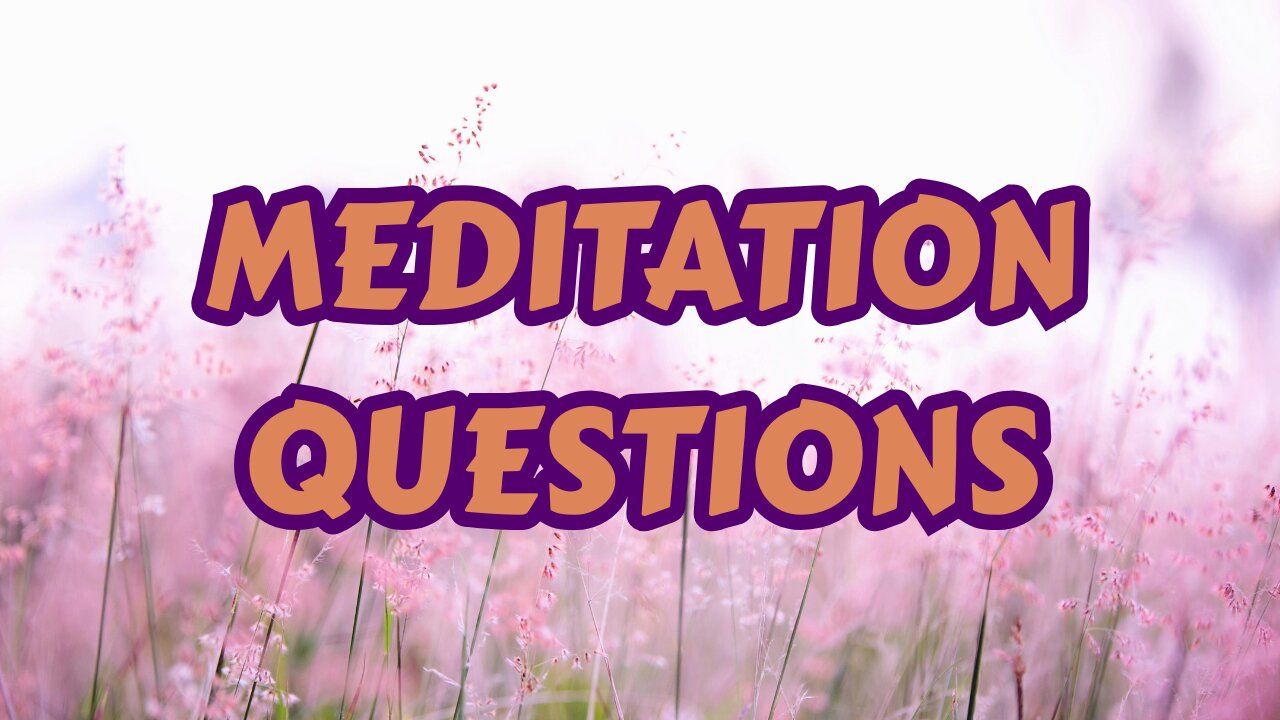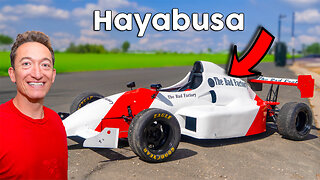Premium Only Content

Train Your Mind: Buddhist Meditation Explained - Talking Meditation with Lama Dawa
Buddhist Daily - Quotes, Commentary and Practical Wisdom
Video and image credit goes to the many creators at pexels.com
Follow us on Instagram: instagram.com/buddhist_daily
Follow us on Rumble: rumble.com/c/c-7555681
Subscribe to our channel on YouTube: youtube.com/@buddhistdaily
Meditation Podcast – Tal and Lama Dawa
Tal:
This is Tal and Lama Dawa.
We're doing a meditation podcast to help our viewers understand meditation a little better and help them actually practice meditation.
I'm going to ask Lama Dawa a question and we're going to hear his answers. I'm just going to begin straight away.
Tal:
Lama Dawa, what is meditation?
Lama Dawa:
Ah, well, we have a mind.
And meditation is encountering our mind.
It's watching our mind, and it's learning how to—you could say—train our mind.
It’s how we develop a combination of relaxation and discipline.
And we all know in the modern world there are so many distractions.
Meditation is actually an opportunity to not feed those distractions and to remind ourselves what it is to have a mind that is undistracted, present, and focused, while still relaxed.
Tal:
Can you elaborate a little bit more on when someone begins a meditation practice?
What should they be doing? How should they go about meditation?
Even things like what time, how long should they try, or how long should they meditate when they're first attempting to?
Lama Dawa:
So, beginners have a large menu of options.
There are many styles and approaches to learning meditation, from different traditions—even different spiritual traditions or backgrounds.
In terms of Buddhist meditation, what’s commonly and traditionally done is to watch the breath.
There are several important components to beginning meditation.
One is posture.
Usually, we sit. Let's just assume we're sitting.
You can loosely cross your legs.
The important thing is to have your spine straight—your back is straight.
You relax your mind, you relax your speech (so you're not talking), and you relax your body.
But your body should be in a dignified, natural posture.
Then, there are many instructions depending on the style. But to give a beginner’s overview: we watch the breath.
What we’re really doing, in terms of beginning meditation, is starting to cultivate what we call mindfulness—an awareness of where we are and what we’re doing.
We’re learning how to watch, not interfere with, the mind too much.
Many people think meditation is about blocking your thoughts or getting rid of thinking.
That’s not how it is. First of all, it’s really not possible—especially for beginners—and it’s unnecessary.
We want to be aware.
If we are thinking and we have thoughts, it’s okay.
The important thing is just to watch without judgment.
In some Buddhist schools of meditation, we just watch the breath.
We notice when we’re inhaling—without judgment.
We notice when we’re exhaling—without judgment.
We notice when we’re in between—without judgment.
In other traditions, we count the breath.
This is also a very good way to stay mindful.
Sometimes we use a rosary or mala, beads to count the breath or keep track.
At some point, especially for beginners, we will realize we’ve forgotten the breath because we’ve gotten caught up in some story in our mind.
That’s what we call distraction.
We can be distracted by things we hear outside ourselves, or by things generated inside our own mind.
Whatever it is, distraction means we’ve lost focus or concentration.
Having a counter—a mala or rosary—helps keep us accountable.
Ultimately, we’re accountable to ourselves.
We just keep coming back to this awareness of what we’re doing—in this case, just noticing the breath.
So meditation is a pretty simple process in a way.
Not saying it’s easy, because we have this habit of getting distracted easily,
but it’s a simple and down-to-earth process.
Tal:
Great, great. I have one other question for the remainder of our time.
You said “judgment.”
Is it correct to say non-reaction to the thoughts that are arising or those distractions?
Lama Dawa:
Basically the same thing, Tal—yes.
When we say non-judgment or non-reaction, it means we just observe without getting too involved or participating.
We don’t have to like or dislike, approve or disapprove.
We’re just watching.
We’re learning to detach while staying very focused and present.
And that’s kind of the journey here.
Tal:
Perfect. Thank you so much, Lama Dawa. I appreciate you very much.
I hope this is helpful. This is a simple start for beginners.
Lama Dawa:
Absolutely. And we’ll continue focusing on meditation and meditation practices.
#Buddha #Buddhism #Dharma #Metta #LovingKindness #Mindfulness #Meditation #BuddhistWisdom #Spirituality #InnerPeace #Compassion #Karma #Zen #Theravada #TibetanBuddhism #BuddhaQuotes #BuddhaTeachings #Enlightenment #Wisdom #SelfGrowth #DailyWisdom #Mindset #Healing #PositiveVibes #Gratitude #DalaiLama #Bodhisattva #SelfLove #Philosophy #SpiritualGrowth #Peace #Awareness #Consciousness #LifeLessons #SacredTexts #SelfAwareness #EnergyHealing #LawOfKarma #MindfulLiving #SacredWisdom #EasternPhilosophy #LifePurpose #UniversalLove #BuddhistLifestyle #BuddhistDaily #BuddhistTemple #Yoga #Presence #HigherConsciousness #NonAttachment #Sangha #MettaSutta #UnconditionalLove #Love #motivation #motivational
-
 11:37
11:37
Robbi On The Record
6 hours agoThe Devil is in the Branding..
603 -
 UPCOMING
UPCOMING
Savanah Hernandez
2 hours agoWhy Gen-Z Is So Radicalized Against Immigration
6941 -
 21:42
21:42
The Rad Factory
8 hours agoCrotch Rocket Swapped F1 car
1261 -
 1:31:55
1:31:55
Glenn Greenwald
3 hours agoMinnesota Shooting Exploited to Impose AI Mass Surveillance; Taylor Lorenz on Dark Money Group Paying Dem Influencers, and the Online Safety Act | SYSTEM UPDATE #507
76.3K22 -

SpartakusLIVE
4 hours agoRUMBLE PREMIUM - AD FREE | In the MAYHEM of the DEMONS and the TATERS, One HERO Will RISE to the TOP
9.5K1 -
 1:05:09
1:05:09
Donald Trump Jr.
6 hours agoMare Liberum: The Next Chapter in Protecting Our Sovereignty, Interview with Erik Bethel | Triggered Ep.271
101K59 -
 6:36:44
6:36:44
StoneMountain64
7 hours ago#1 WARZONE TACTICIAN + New Battlefield Trailer
61.3K7 -
 LIVE
LIVE
LFA TV
13 hours agoLFA TV ALL DAY STREAM - THURSDAY 8/28/25
844 watching -
 LIVE
LIVE
LIVE WITH CHRIS'WORLD
5 hours agoLIVE WITH CHRIS’WORLD - YOU DON’T HATE THE MEDIA ENOUGH!
144 watching -
 LIVE
LIVE
SavageJayGatsby
1 day agoFirst Rumble Exclusive Stream?! | Let's Play: Prey | $300 Weekly Goal for Spicy Bite Saturday
169 watching